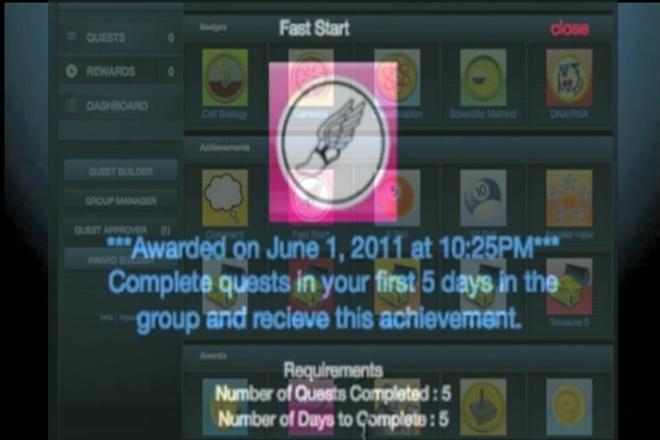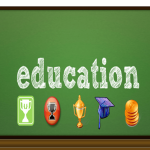Instead of courses consisting mainly of textbook learning and lectures, classes built around gamification boost student engagement by requiring them to select “quests” and progress at their own pace through a series of educational activities. Along the
learning path, if participants can earn experience points, levels and badges that can translate to a grade, such a learning is termed as Quest-Based Learning. Quests are online learning activities that address the core of the subject matter. Quests can range from listening to a podcast or watching a short video to partnering with a classmate for discussion or writing a short essay etc.
Motivation and Learning: Quest-Based Learning (made using Xtranormal
)
3D GameLab – The Power of Quest-Based Learning
Some details:
Quest-based learning is an instructional design theory that leverages game mechanics and gamer-like learning communities to support student choice within the curriculum, and offers promising pedagogical possibilities in the area.
In both video game and quest-based learning architectures, quests are goal oriented (or task-oriented)searches for something of value that regulate or guide a player/learner through the narrative of the game/course.
“Quests involve a series of trials, puzzles, and tasks (such as locating secret chambers and obtaining hidden information) that the participant must conquer for their character to advance to the next game level”.
Quest-based learning design focuses on an individualized and flexible curricular experience. In QBL, students can select activities, called quests, rather than assignments in a fixed linear order. Students leverage choice to promote engagement rather than waiting for a due date. Like curricular assignments,quests can contain any combination of text, media, or experience and culminate with a deliverable like a paper, speech, video, project, or other practical artifact. Since quests are digitally tied to specific standards and/or competencies, digital systems supporting quest-based learning record that progress when completed. Traditional course content taught through quest-based learning can offer multiple pathways that lead to an equivalent educational outcome.


